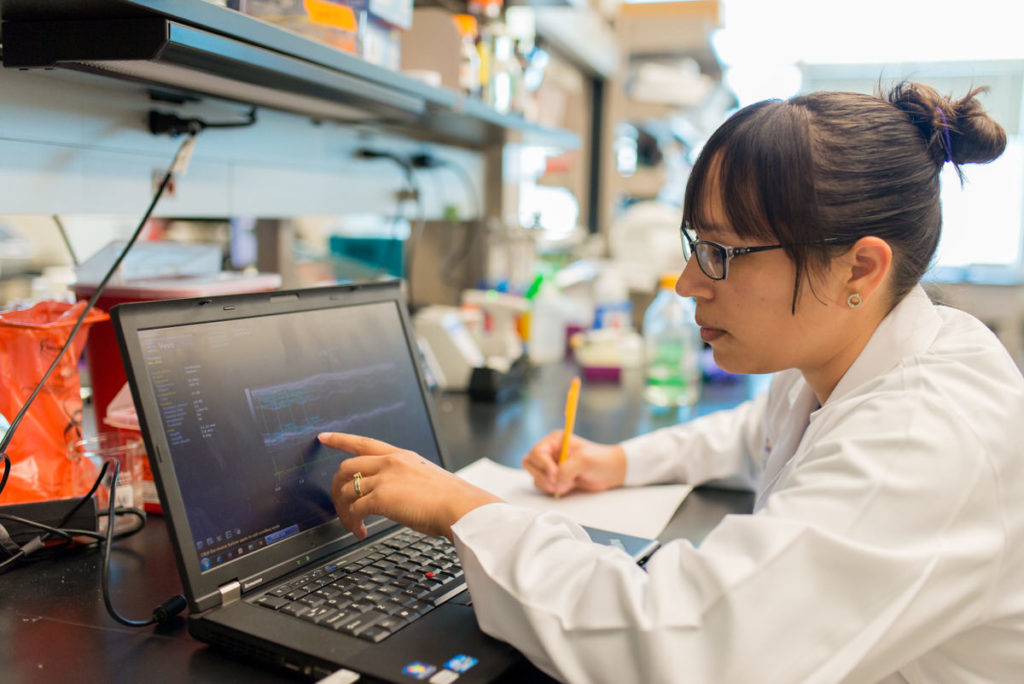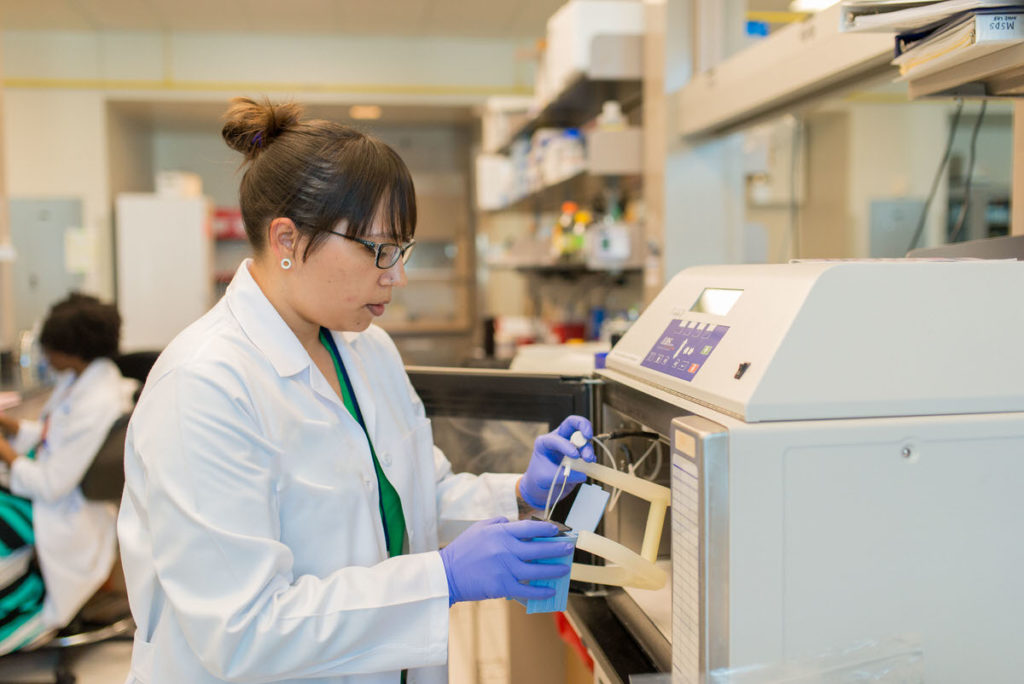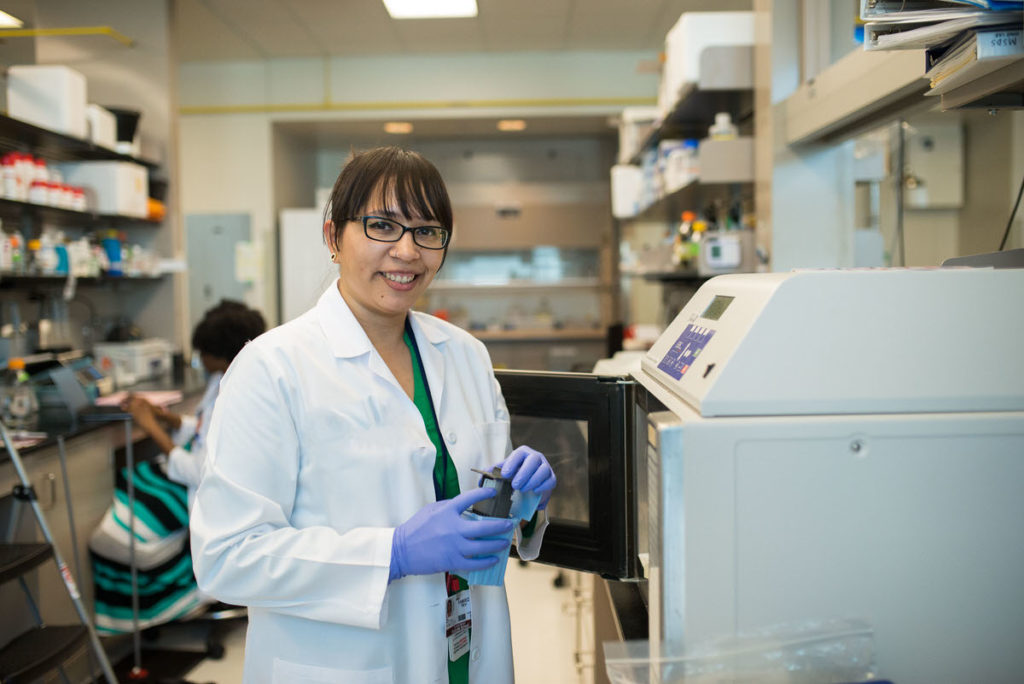Final Words: Trevi Ramirez Mancilla and the South Texas Medical Scientist Training Program
Your name, program, mentor name.
Trevi Ramirez Mancilla
IMGP- Physiology, South Texas Medical Scientist Training Program (STX-MSTP)
Gregory Aune, M.D., Ph.D.
When did you realize you were passionate about science?
I always loved learning about how things in the natural world worked. At one point, when I was about seven or eight, I was sure I was going to be an entomologist. Then when I was a little older, my brother and I talked about making nature documentaries. Then one year, I went on a school field trip. We observed someone dissect a cow’s eye. What really impressed me though, was the demonstration where an instructor pulled on the tendons of a cadaver arm to make the fingers move. I think in that instant I realized that I had always focused on the external world. I had never considered all the beautiful intricacies of the human body and how it functioned.
Please tell me about yourself, why did you pick UT Health San Antonio, and your program.
I grew up moving around the country with my large family. I am the middle child of seven “military brats.” I now have my own children, who will be three and five in October. They are hilarious, in my biased opinion. I had them in my first and third years of graduate school. As I write my dissertation, my husband has been wonderful picking up my slack at home.
I chose UT Health San Antonio because I was a lab volunteer and then a research assistant for 2.5 years before applying to my program. I was familiar with the institution and knew the resources available for graduate students and research. I also knew that the academic faculty were very accessible. Lastly, when I interviewed for the medical school, I witnessed the camaraderie among the students. Medical and graduate school are difficult enough without having to feel that you are competing with your peers and cannot look to them for support.
Tell me about your research. Why are you passionate about your research topic? How did you first become interested in it?
I first met my mentor when I was a research assistant in my former lab. He actually gave a presentation on moving forward in your career path. As a background for his talk, he discussed his own career and research. This was the first time that I learned that children who survive cancer have a lifetime of chronic diseases ahead of them. Sometimes these diseases will prove fatal to them when they are a young adult. I couldn’t imagine being a parent or a patient myself, going through the difficulties of cancer treatment, surviving and then learning that your treatment has now caused a whole new set of health problems.
What do you want the public to know about your research? Why is your topic important?
 Everyone is very focused on the high survival rate of pediatric cancers. While it is wonderful, we still have a long way to go. The work that I do will hopefully help future survivors live with a higher quality of life. We also hope that the work in our lab will help develop methods for identifying cardiotoxic treatments at earlier stages of development, before as many resources are poured into them.
Everyone is very focused on the high survival rate of pediatric cancers. While it is wonderful, we still have a long way to go. The work that I do will hopefully help future survivors live with a higher quality of life. We also hope that the work in our lab will help develop methods for identifying cardiotoxic treatments at earlier stages of development, before as many resources are poured into them.
Have you won any awards or are you apart of any organizations that you are passionate about?
I did found a Beer Interest Group in medical school… I have won travel awards, both from national associations and from poster presentations at institutional research days. I am passionate about outreach especially to underrepresented students. I was selected by the American Physiological Society (APS) as one of five students in the inaugural year of their Graduate Student Ambassadors program. Our purpose was to represent the APS to undergraduate students and inform them of the different opportunities for funding and other benefits of membership. As part of my presentations, I would tell the students about my background and how I was a Starbucks Barista before doing research. I wanted them to know that it’s okay to not have a “perfect” journey to a career in healthcare or research. I also wanted to be a role model to other minorities, especially female. As a medical student, I was very active in an outreach program called “Teen Medical Academy” that taught basic medical knowledge to middle and high school students considering a health professions career. For my high level of involvement, the UHS Family & Community Medicine Department awarded me the “Commitment to Community” award. The other activity that I really enjoy is judging at the science fairs- local, regional, and state.
What do you like most about being at UT Health San Antonio or your program?
 I really enjoy my STX-MSTP program because it is relatively young, and as students, our input has helped shape the institute.
I really enjoy my STX-MSTP program because it is relatively young, and as students, our input has helped shape the institute.
What do you like to do outside of graduate school?
Before I had kids, I enjoyed exploring San Antonio on my bike. I am a bit of a beer connoisseur and would often attend the open houses at the various breweries in town. I also was active in community theater, as a technician, an actor, a director, and then as a patron. Now I explore San Antonio with my kids, trying out new playgrounds and parks. We also have a zoo membership and love being able to go as often as we can.
What’s next?
My short term plans are to return to the third year of medical school in July. After I graduate from medical school, things are a little up in the air. As of now, I do not know to which residencies I will apply. One interest of my mine is in the relatively new specialty of child abuse pediatrics. The news stories about abuse and neglect leave me with such a horrible feeling and it would be wonderful to work towards minimizing cases of abuse and neglect.


